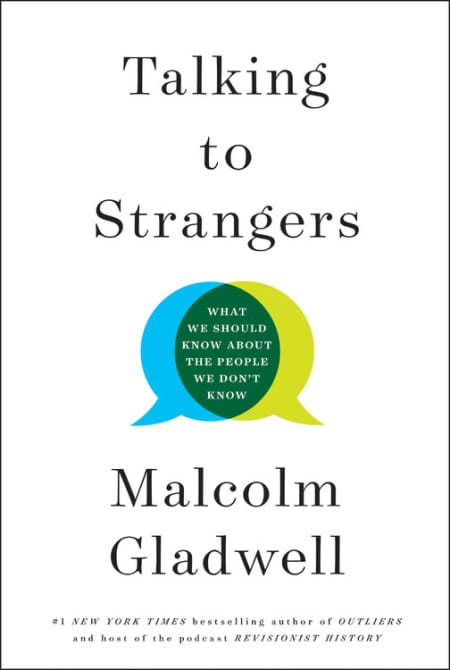I just rewatched Season 1 of Veronica Mars and that sassy blonde could certainly read people. Whatever con you thought you were perpetrating? Well, Veronica Mars could sense your motive each and every time. I guess that’s why she was such a great teenaged detective.
Critics scoff at Malcolm Gladwell but his mass-market friendly research sells millions. His latest book Talking to Strangers is about how humans are horrible–absolutely horrible–at spotting a liar. The primary culprit? Us humans are wired to believe the best in people.
Sensing Motive on Gladwell’s Research
Gladwell found that if you think you are good at spotting when others are deceiving you, then the truth is you are probably deceiving yourself. There are a couple reasons for this.

First, research shows that the majority of people are indeed basically honest. Studies have found that most people have a thread of basic decency, which means that humanity as a whole trends toward truth-telling. But that small subset that does lie? Well, they lie often and shamelessly so.
Second, us humans are evolutionarily poor at spotting the lying liars whose pants are on fire. Because honesty overall is the default in humanity, our operating assumption is that the people we interact with are honest.
Says Gladwell, “Humans struggle mightily to understand the people we meet–and are remarkably bad at separating fact from fiction.”
In short, it’s like we perpetually roll natural 1s on our sense motive checks.
This checks out of course. Although each of us likes to think we are exceptional and–although literally everyone else might struggle in spotting the truth–we ourselves are world-class at it. But the reality is we’ve all been duped by false information and aren’t nearly as “street smart” as we think we are.
In fact, there is actually a very good reason for this. It’s critical that we trust in our day-to-day lives. Imagine pulling out your iPhone to double-checking the tab when the cashier a Five Guys says it’s $12.34. Nah, we trust the cashier shoot us straight and we continue to enjoy Veronica Mars. Indeed, we couldn’t navigate a day if we assumed a con at every turn.
Sense Motive in D&D
Yet, our D&D games leave spotting the truth up to a roll of the dice. And, you know, maybe that’s not a bad thing. Sure, real-world research has taught us that we should all get a -15 penalty on sense motives checks, but that’s no fun at the table.
Besides, our D&D games already borderline on paranoia. Maybe one NPC lied to the party 12 sessions ago, yet the next thing you know is the game became a slog because everyone had to roll a sense motive check when interacting with a bar maid. Us gamers are a weird bunch.
In a funny way, our D&D games must mirror our real lives at times. Just like we need to trust the register at Five Guys lest our days become a slog, sometimes we need trust the NPC bar maid. Or maybe we bring a d20 to Five Guys. I don’t know.
In conclusion, sense motive is a dumb check. Hey, research says so! But that doesn’t mean we throw it out, just like we don’t throw a tantrum at Five Guys. Sure, us humans are bad at spotting a liar, but that doesn’t mean we get jaded and let cynicism darken our hearts.
So, what’s the solution? Heck if I know. Remember, D&D is a game. Any calls for “realism” should stop well short of getting your panties in a bunch. Sometimes it’s vitally necessary to create a mechanic that holds little sway in reality yet serves to facilitate fun at the table.

